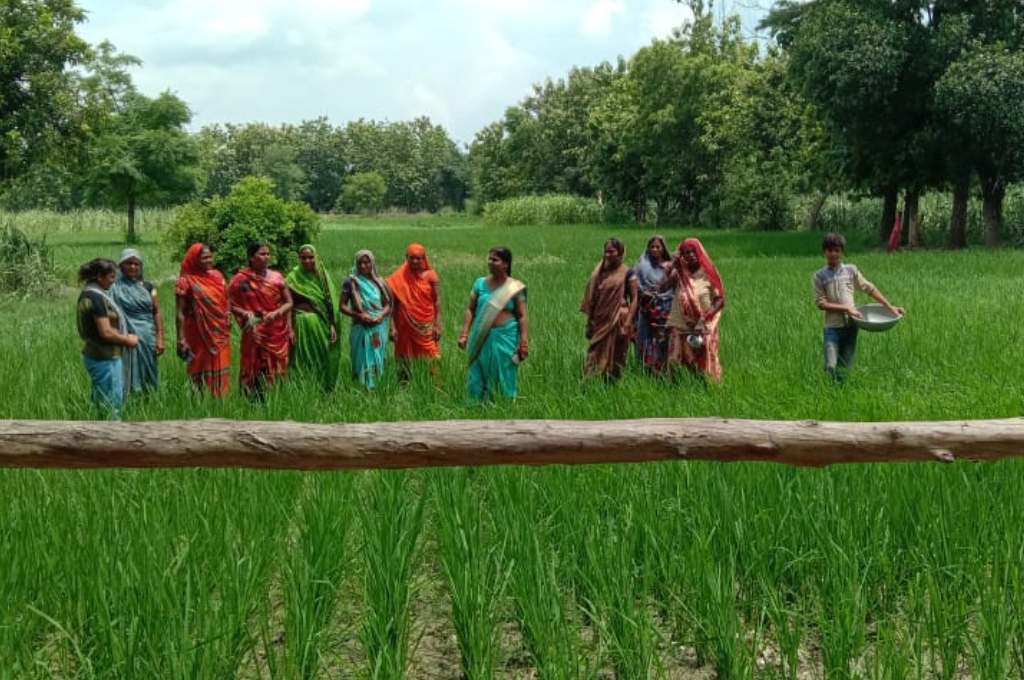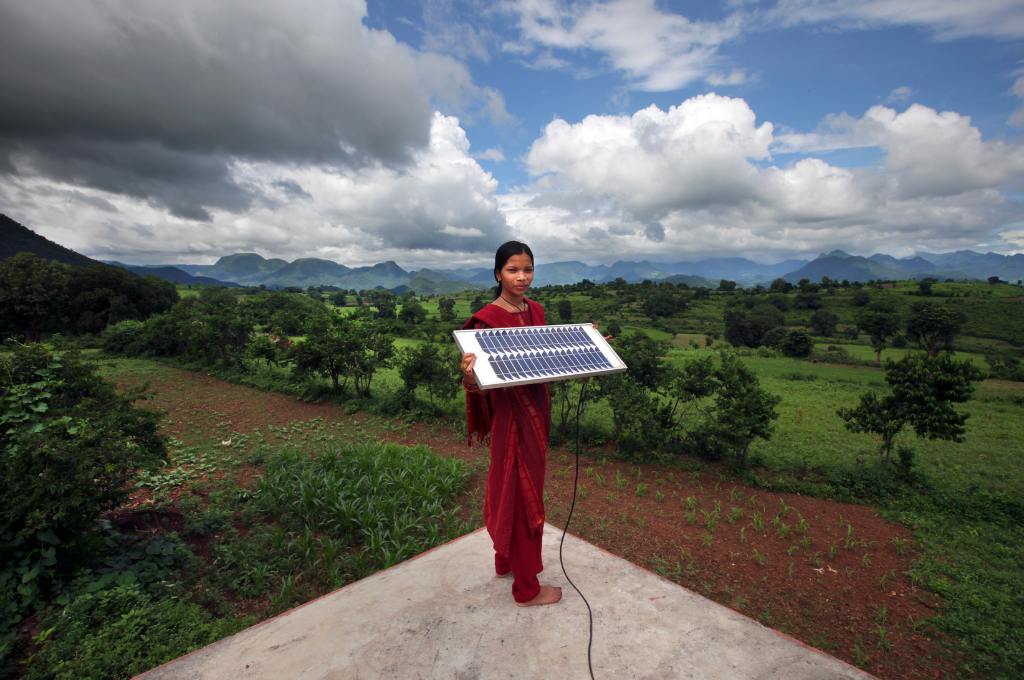Even as COVID-19 lays bare deeply entrenched structural inequalities in relation to gender norms, its true impact is still unknown. What we do know is that girls’ lives have forever changed because of the pandemic. Girls have experienced greater violence; they have withdrawn from school either because they do not have the ability to access learning (no internet, no smartphones), or because they have shouldered greater household responsibilities. Finally, as data has shown through Ebola, during pandemics, the health and well-being of girls are put on the backburner, due to other pressing needs.
However, COVID-19 is a double-edged sword. The pandemic has also thrown open possibilities and opportunities to address structural inequalities. The call to action at this time is to ‘build back better’—to unlearn things that haven’t worked and build back in a more inclusive manner.
The pre-COVID-19 world had many imbalances and inequalities and we are now in a moment where we have the potential to ensure that the next ‘normal’ addresses these, including who holds knowledge, who has a seat at the table, and how decisions are made.
Related article: Making your programme design more equitable
Building back better: A two-pronged approach
One of the most profound ways in which we can ‘build back better’ is by recognising the wisdom and leadership potential within our own organisations and within the communities where we work. Leadership and wisdom exist in all spheres and we now have the opportunity to create a path that enables us to recognise and cultivate this and change how we operate as a sector.
One way of doing this is by embracing the core principles of feminist leadership—questioning power dynamics and sharing power—with the aim of shifting power from ‘power over’ to ‘power to’.
The first and most critical approach is to pay attention to the voices of girls and young women so that they have a seat at the table in relation to the issues that affect them.
This approach is two-pronged: The first and most critical is to pay attention to the voices of girls and young women so that they have a seat at the table in relation to the issues that affect them.
The second is to ensure that we are not replicating existing power structures within our own organisations. If our vision is to alter social structures to improve outcomes for the communities that we work with, then our organisations cannot replicate features such as top-down decision-making and concentrating power in the hands of a select few people in leadership positions.
If we want to work on changing social norms, then we have to take a stand to be disruptive within our own organisations. Feminist writer and American civil rights activist, Audre Lorde, says that the master’s tools will never dismantle the master’s house. So, if our organisations are not inclusive, not sharing power, and not questioning who is holding power, then how can we expect change within the communities we work?
Shifting from ‘power over’ to ‘power to’
This form of decision-making and leadership is based on the idea that a few people in positions of power drive the strategic vision and direction of the organisations and others execute this. Unfortunately, this is still common practice, where individuals or groups at the top make decisions affecting entire communities, without actually involving these communities or the people executing the project, such as junior staff members.
This approach is based on the idea that power is a finite resource. Historically, this form of power is consolidated in the hands of men, and there are massive barriers that act as a deterrent for women to assume this form of leadership. When it comes to our sector, this top-down approach means that the communities who we work with do not have a say in decisions that have the potential to alter their life trajectories.
Adopting the feminist principle of sharing power can help us change this.

One way to ‘build back better’ is by questioning power dynamics and sharing power—with the aim of shifting power from ‘power over’ to ‘power to’. | Picture courtesy: Sumer Vaidya
‘Power with’ is when power is shared and decisions are made through collaboration and consensus building; a central idea of feminist leadership. The foundations for ‘power with’ lie in solidarity and are rooted in collective responsibility with team members, collaborators, and communities.
We cannot claim that we are changing social norms if our organisations follow the long-established rules of the road.
This means that leadership is built at all levels within the organisation and individuals in leadership positions have the courage to be vulnerable with their teams. Ultimately, if we are going to increase gender justice in the work that we do, then we must be equitable within the workplace. We cannot claim that we are changing social norms if our organisations follow the long-established rules of the road.
COVID-19 has shown us the role that girls and young women have played on the frontlines, be it disseminating information about the pandemic, distributing essential materials, or organising and collectivising in the face of uncertainty. Their leadership and wisdom is undeniable and we have seen several organisations embracing this. Rather than treating them as ‘beneficiaries’ of a programme, we need to start seeing girls as leaders who have the resilience, life experience, and expertise to create change themselves.
‘Power to’ stands for enabling the agency of others. This means creating and holding space so many voices can be heard, and people can make decisions about their own lives, and those around them. This stems from engagement in a meaningful and non-tokenistic manner.
At EMpower, where I work this is what we are striving to do through our Girls Advisory Council (GAC), where 16 adolescent girls have presented their ideas and shaped our grant-making strategy in India from 2019-2022. The GAC has created a shift in whom we are accountable to; in this case, it is this group of 16 adolescent girls.
This has also allowed us to move from being extractive, i.e. using girls as a data point and not reporting to them—to creating feedback loops so that we are accountable to them. We create these feedback loops by asking the girls what they think, and then periodically reporting to them about what we have done with their advice to us. ‘Power to’ places decision-making power in the hands of the experts. Ultimately, we believe that when designing girl-centred programmes, there is no greater expert in their lives than the girls themselves.
Related article: When failure is part of the feminist process
Reimagine what shared power looks like
Feminist leadership principles of sharing power offer us the tools to ‘build back better’ not only within communities but also within our own organisations. The responsibility of democratising power falls upon all of us, and we must use these principles to create systemic shifts in how we exercise power.
This is not an easy road because it involves unlearning what we know about organisations, working with communities, and designing programmes differently. In our experience, it involves a significant amount of training with girls to ensure that they have a toolbox of skills, and the agency to be able to share their opinions and their advice with us. Within organisations, shifting power necessitates a large time investment by those in leadership positions to coach and advise more junior staff members, so that they are able to create and own projects.
Deep-seated inequalities, such as gender, religion, and caste are resistant to change, and those of us who work in the social sector do so to challenge these very inequalities.. To do this, we need to reimagine what shared power looks like, and instead of waiting for the rest of the world to change, we, as a sector, need to lead this change. To echo an anthem from the women’s movement— Tu khud ko badal, to phir yeh zamaana badlega. (Change yourself, so that society can change).
At Arthan’s Building Inclusive Organisations conference, Nisha Dhawan spoke at a panel on intergenerational insights from women in development.
This article was revised on November 27, 2020 to include the line above.
—
Know more
- Learn more about EMpower’s Girls Advisory Council and its advice on adolescent girls programming.
Do more
- Think about who holds power and how power is exercised within your own organisation.
- Embrace feminist leadership principles within your own organisation using this toolkit from our grantee partner CREA.
- Enable young people within your organisations to speak out and be heard using these tools.




